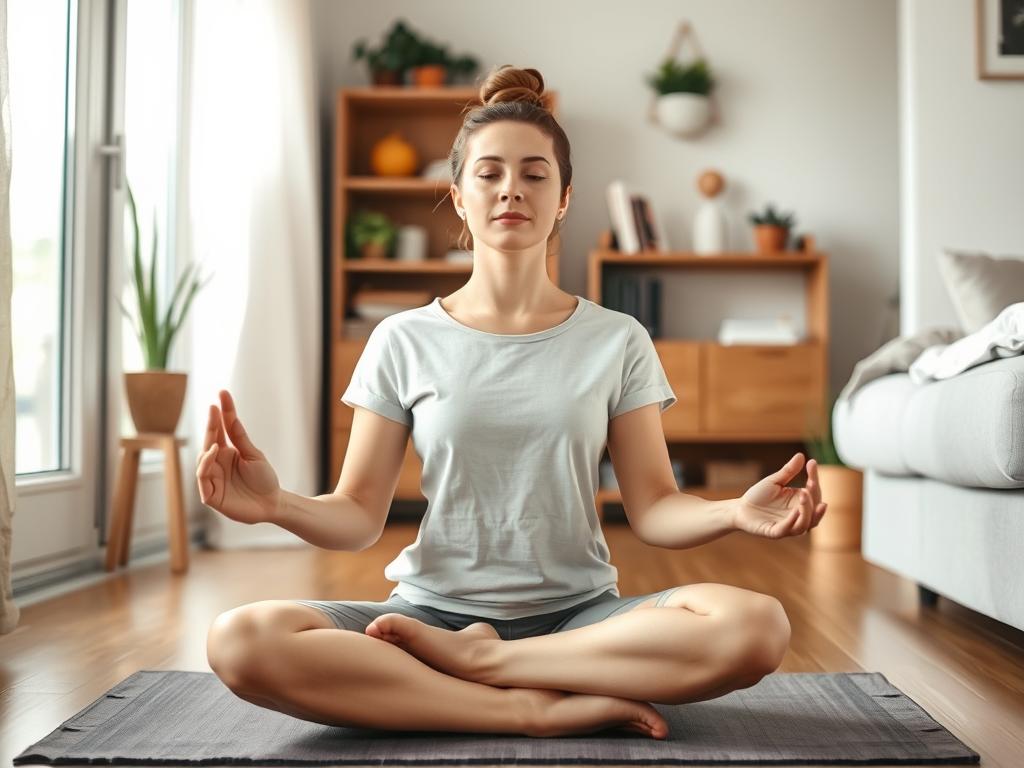In a world of Instagram-perfect bubble baths and expensive spa retreats, self-care has become increasingly misunderstood. What started as a genuine practice for maintaining mental and physical health has morphed into something commercialized, complicated, and sometimes guilt-inducing. The truth? Real self-care looks nothing like what we often see portrayed in media and advertising.
Today, we’re cutting through the noise to expose five common self-care myths that might be preventing you from embracing this essential practice. By replacing these misconceptions with practical truths, you’ll discover how to incorporate realistic self-care into your daily life—without the guilt, perfectionism, or unrealistic expectations.
Myth 1: “Self-Care Is All About Spa Days and Bubble Baths”
When you hear “self-care,” what images come to mind? For many, it’s luxurious spa treatments, scented candles, and bubble baths with rose petals. This narrow definition has been perpetuated by social media and marketing campaigns that equate self-care with specific indulgent activities.
The Truth: Self-Care Is About Meeting Your Basic Needs First
Real self-care often looks much more mundane—and that’s perfectly okay. At its core, self-care is about ensuring your fundamental physical, emotional, and mental needs are met. Sometimes the most powerful acts of self-care include:
- Getting enough sleep (7-8 hours for most adults)
- Drinking water throughout the day
- Taking your medications on time
- Setting healthy boundaries with people who drain your energy
- Saying “no” to additional commitments when you’re already stretched thin
These basics form the foundation of wellness. While bubble baths and massages can be wonderful additions to your self-care routine, they’re extras—not the essentials.

Myth 2: “Self-Care Is Selfish”
Many people, especially women and caregivers, struggle with the belief that prioritizing their own needs is somehow selfish or indulgent. This myth stems from cultural expectations that valorize self-sacrifice and putting others first at all costs.
The Truth: Self-Care Is Necessary for Sustainable Giving
Think of self-care as necessary maintenance rather than optional luxury. Just as you wouldn’t expect your car to run without fuel or regular maintenance, you can’t sustainably care for others when your own tank is empty.
“You cannot serve from an empty vessel.” — Eleanor Brownn
Research consistently shows that caregivers who practice regular self-care:
- Experience less burnout and compassion fatigue
- Provide better quality care to others
- Maintain healthier relationships
- Model healthy boundaries for those around them
By taking care of yourself, you’re actually ensuring you can continue to be there for others in a sustainable, healthy way.

Myth 3: “I Don’t Have Time for Self-Care”
In our busy, achievement-oriented culture, many people believe self-care requires large blocks of time they simply don’t have. With work, family, and other responsibilities, setting aside hours for self-care can seem impossible.
The Truth: Effective Self-Care Can Happen in Small Moments
Self-care doesn’t require hours of your day. In fact, some of the most impactful self-care practices take just minutes and can be integrated into your existing routine.
Micro Self-Care Practices (1-5 minutes):
- Taking three deep breaths before responding to a stressful email
- Stretching for 2 minutes between meetings
- Drinking a full glass of water mindfully
- Writing down three things you’re grateful for
- Setting a boundary by saying “no” to an optional commitment
Integrated Self-Care (no extra time):
- Practicing mindfulness while washing dishes
- Listening to a podcast or audiobook during your commute
- Taking a walking meeting instead of sitting
- Using your lunch break to step outside for fresh air
- Setting up automated bill payments to reduce stress
The key is consistency with small actions rather than occasional grand gestures. These micro-moments of self-care add up significantly over time and can be more sustainable than trying to find large chunks of time in an already packed schedule.

Myth 4: “If It Doesn’t Cost Money, It’s Not Real Self-Care”
The commercialization of self-care has created the misconception that effective self-care requires purchasing products, services, or experiences. From expensive skincare routines to wellness retreats, there’s an entire industry built around selling self-care.
The Truth: The Most Powerful Self-Care Practices Are Often Free
Some of the most evidence-backed self-care practices cost absolutely nothing. Research consistently shows that these free activities have profound effects on mental and physical wellbeing:

- Movement: Walking, stretching, or dancing to music you already own
- Nature: Spending time outdoors, gardening, or simply sitting under a tree
- Connection: Having meaningful conversations with friends or family
- Boundaries: Saying no to energy-draining activities or relationships
- Rest: Taking a nap or going to bed 30 minutes earlier
- Breathing: Practicing deep breathing exercises or simple meditation
While there’s nothing wrong with occasionally investing in products or services that genuinely support your wellbeing, the foundation of effective self-care is accessible to everyone, regardless of financial resources.
Myth 5: “Self-Care Should Always Feel Good”
Perhaps one of the most persistent myths is that self-care activities should always feel immediately pleasurable or relaxing. This misconception leads many to abandon practices that might be uncomfortable in the moment but beneficial in the long run.
The Truth: Sometimes Self-Care Is Challenging but Worthwhile
Genuine self-care isn’t always about immediate gratification—sometimes it’s about doing what your future self will thank you for. These forms of self-care might feel challenging in the moment but lead to greater wellbeing over time:
Emotional Self-Care:
- Setting a difficult boundary with someone you care about
- Processing grief or difficult emotions instead of avoiding them
- Going to therapy to work through challenges
- Having an honest conversation about a relationship issue
Physical Self-Care:
- Getting a health screening you’ve been putting off
- Moving your body when you’d rather stay sedentary
- Preparing nutritious meals instead of convenient options
- Going to bed on time instead of scrolling social media
These practices might not provide the immediate dopamine hit of a social media scroll or comfort food, but they contribute significantly to your long-term wellbeing and resilience.

Realistic Self-Care: A Practical Approach
Now that we’ve debunked these common self-care myths, let’s look at what a realistic, sustainable approach to self-care might include:
Daily Basics
- Adequate sleep (7-8 hours)
- Proper hydration
- Nutritious meals
- Brief movement breaks
- Moments of mindfulness
Weekly Practices
- Social connection
- Time in nature
- Reflection or journaling
- Longer movement sessions
- Creative expression
Occasional Investments
- Health check-ups
- Learning new skills
- Deeper rest or retreats
- Professional support
- Special treats or experiences
Remember that self-care is highly individual. What works for someone else might not work for you, and what works for you might change depending on your current circumstances, health, and life stage.

Self-Care and Mental Health: The Connection
It’s important to note that while self-care supports mental health, it isn’t a replacement for professional treatment when needed. Self-care practices can complement therapy, medication, or other treatments for mental health conditions.
When to Seek Professional Support: If you’re experiencing persistent symptoms of depression, anxiety, or other mental health concerns that interfere with your daily functioning, please reach out to a healthcare provider. Self-care is important, but sometimes additional support is necessary.
That said, research shows that consistent self-care practices can help:
- Reduce stress and its physical effects on the body
- Improve mood and emotional regulation
- Enhance resilience during challenging times
- Prevent burnout and compassion fatigue
- Support overall mental wellbeing

Embracing True Self-Care: Beyond the Myths
Self-care isn’t about perfection, luxury, or following someone else’s Instagram-worthy routine. It’s about identifying what you genuinely need to function at your best and making those needs a priority—without guilt or apology.
By letting go of these common self-care myths, you can develop a practice that’s sustainable, effective, and truly supportive of your wellbeing. Remember that small, consistent actions often have a greater impact than occasional grand gestures.
The most important aspect of self-care isn’t what it looks like to others, but how it helps you show up as your best self—for yourself and for those who matter to you.

Start Your Self-Care Journey Today
Ready to drop the myths and start caring for yourself in a way that actually works? Try reframing just one of these today—you deserve it.


